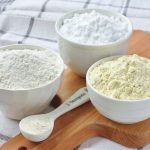Performing acts of kindness and helping other people can be good for people’s health and well-being, according to research published by the American Psychological Association. But not all good-hearted behavior is equally beneficial to the giver. The strength of the link depends on many factors, including the type of kindness, the definition of well-being, and the giver’s age, gender and other demographic factors.
Performing acts of kindness and helping other people can be good for your health
The study was published in the journal Psychological Bulletin.
“Prosocial behavior — altruism, cooperation, trust and compassion — are all necessary ingredients of a harmonious and well-functioning society,” said lead author Bryant P.H. Hui, PhD, a research assistant professor at the University of Hong Kong. “It is part of the shared culture of humankind, and our analysis shows that it also contributes to mental and physical health.”
People who engage in more prosocial behavior are happier and have better mental and physical health
Previous studies have suggested that people who engage in more prosocial behavior are happier and have better mental and physical health than those who don’t spend as much time helping others. However, not all studies have found evidence for that link, and the strength of the connection varies widely in the research literature.
To better understand what drives that variation, Hui and his colleagues performed a meta-analysis of 201 independent studies, comprising 198,213 total participants, that looked at the connection between prosocial behavior and well-being. Overall, they found that there was a modest link between the two. Although the effect size was small, it is still meaningful, according to Hui, given how many people perform acts of kindness every day.
More than a quarter of Americans volunteer
“More than a quarter of Americans volunteer, for example,” he said. “A modest effect size can still have a significant impact at a societal level when many people are participating in the behavior.”
Digging deeper into the research, Hui and his colleagues found that random acts of kindness, such as helping an older neighbor carry groceries, were more strongly associated with overall well-being than formal prosocial behavior, such as scheduled volunteering for a charity. That may be because informal helping is more casual and spontaneous and may more easily lead to forming social connections, according to Hui. Informal giving is also more varied and less likely to become stale or monotonous, he said.
Researchers also found a stronger link between kindness and eudaimonic well-being
The researchers also found a stronger link between kindness and what is known as eudaimonic well-being (which focuses on self-actualization, realizing one’s potential and finding meaning in life), than between kindness and hedonic well-being (which refers to happiness and positive feelings).
The effects varied by age, according to Hui, who began this research at the University of Cambridge. Younger givers reported higher levels of overall well-being, eudaimonic well-being, and psychological functioning, while older givers reported higher levels of physical health. Also, women showed stronger relationships between prosociality and several measures of well-being compared with men — perhaps because women are stereotypically expected to be more caring and giving, and thus derive a stronger sense of good feelings for acting in accordance with those social norms, according to the study.
Finally, the researchers found that studies that were specifically designed to measure the connection between prosociality and well-being showed a stronger link between the two than studies that analyzed data from other large surveys not specifically designed to study the topic.
Research should examine several other potentially important moderators that the research literature has largely ignored
Future research should examine several other potentially important moderators that the research literature has largely ignored so far, the researchers suggest — for example, the potential effects of givers’ ethnicity and social class. Researchers might also examine whether more prosociality is always a good thing, or whether there is an “ideal level” of prosociality beyond which too much kindness and giving become detrimental to the giver, according to Hui.
1. Bryant P. H. Hui, Jacky C. K. Ng, Erica Berzaghi, Lauren A. Cunningham-Amos, Aleksandr Kogan. Rewards of kindness? A meta-analysis of the link between prosociality and well-being.. Psychological Bulletin, 2020; DOI: 10.1037/bul0000298

Razi Berry is the founder and publisher of the journal Naturopathic Doctor News & Review, which has been in print since 2005, and the premier consumer-faced website of naturopathic medicine, NaturalPath. She is the host of The Love is Medicine Project docuseries, The Natural Cancer Prevention Summit, The Heart Revolution-Heal, Empower and Follow Your Heart, and the popular 10-week Sugar Free Summer program. From a near death experience as a young girl that healed her failing heart, to later overcoming infertility and chronic fatigue syndrome and fibromyalgia through naturopathic medicine, Razi has lived the mind/body healing paradigm. Her projects uniquely capture the tradition and philosophy of naturopathy: The healing power of nature, the vital life force in every living thing and the undeniable role that science and mind/body medicine have in creating health and overcoming dis-ease. You can follow Razi on social media: Facebook at Razi Berry, Instagram at Razi.Berry and join the Love is Medicine group to explore the convergence of love and health. Look for more, and listen to more Love is Medicine podcast episodes here.

















